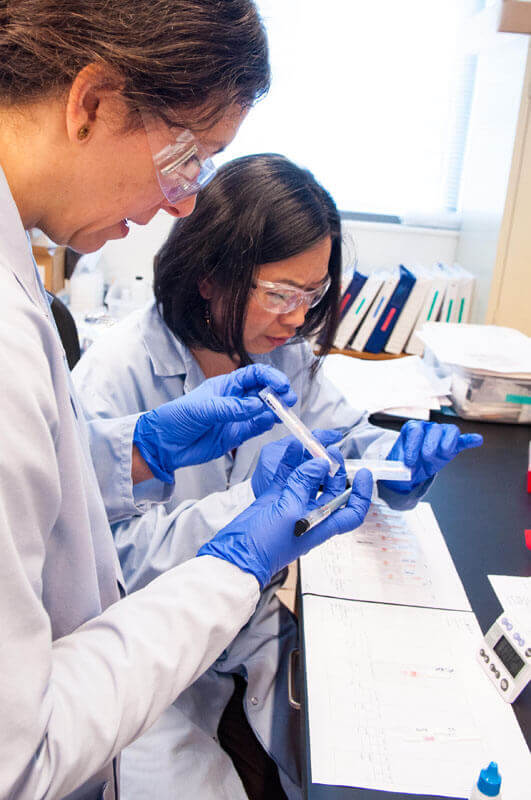
- WHO is moving forward on creating of new pooled fund to finance R&D. PATH/Patrick McKern
In this guest post, Alexandra Heumber—head of policy affairs at the Drugs for Neglected Diseases initiative—discusses actions taken during the World Health Organization (WHO)’s Executive Board meeting which could impact financing for the research and development (R&D) of new health technologies for developing countries.
Earlier this week, the WHO’s Executive Board concluded its 136th annual executive board meeting. Given the Ebola epidemic and ongoing debates about chronic
underinvestment in health R&D for developing countries, it was no surprise that global health R&D featured prominently on the board’s agenda.
The board discussed the follow-up of the report of the Consultative Expert Working Group on Research and Development (CEWG): Financing and Coordination,
which proposed establishing a voluntary pooled fund to finance global health R&D. The board agreed to move forward with establishing this fund
at the WHO Special Programme for Research and Training in Tropical Diseases (TDR). The fund will finance R&D for type II and III diseases, as well as specific needs of developing countries in relations to type I diseases.
During discussions, member states stressed the importance of this fund, recalling the CEWG recommendations and citing the Ebola crisis and growing antimicrobial
drug resistance in justifying its urgent need. At the same time, member states recognized that the success of the fund will depend on securing adequate
funding, particularly new funding from new donors.
There was broad agreement among member states representing different regions to move forward in creating the fund and more broadly in setting up the four
elements to serve as a framework to monitor, coordinate, and finance global health R&D based on the CEWG report. These include:
- The global R&D observatory to monitor funding for R&D and expenditures
- A coordinating body with a scientific review committee
- The pooled fund at TDR
- Ongoing demonstration projects to illustrate how the fund would work and how CEWG principles such as delinkage—separating drug prices from the
cost of R&D—and incentive mechanisms could be implemented
During the board meeting, several member states pledged funding to advance these ongoing efforts:
- Switzerland pledged US$6 million to the demonstration projects and observatory budget line, of which $4 million has already been allocated to the TDR
pooled fund. The remaining $2 million will be awarded through matching grants from low- and middle-income countries (LMICs) at the rate of $1 for
every $2 contributed. Forty-thousand will be used to start the global health R&D observatory.
- Norway pledged $1.3 million including$650,000 to the TDR pooled fund and $650,000 to be awarded through matching grants from LMICs, again at the rate
of $1 for every $2 contributed.
- Brazil pledged $1 million.
It is encouraging to see the overall CEWG process being reinvigorated and concrete outcomes moving forward. Nevertheless, more mobilization by stakeholders
and member states, including political and financial commitments, must occur. Public leadership by all countries is now crucial to make the proposed
framework a reality.

